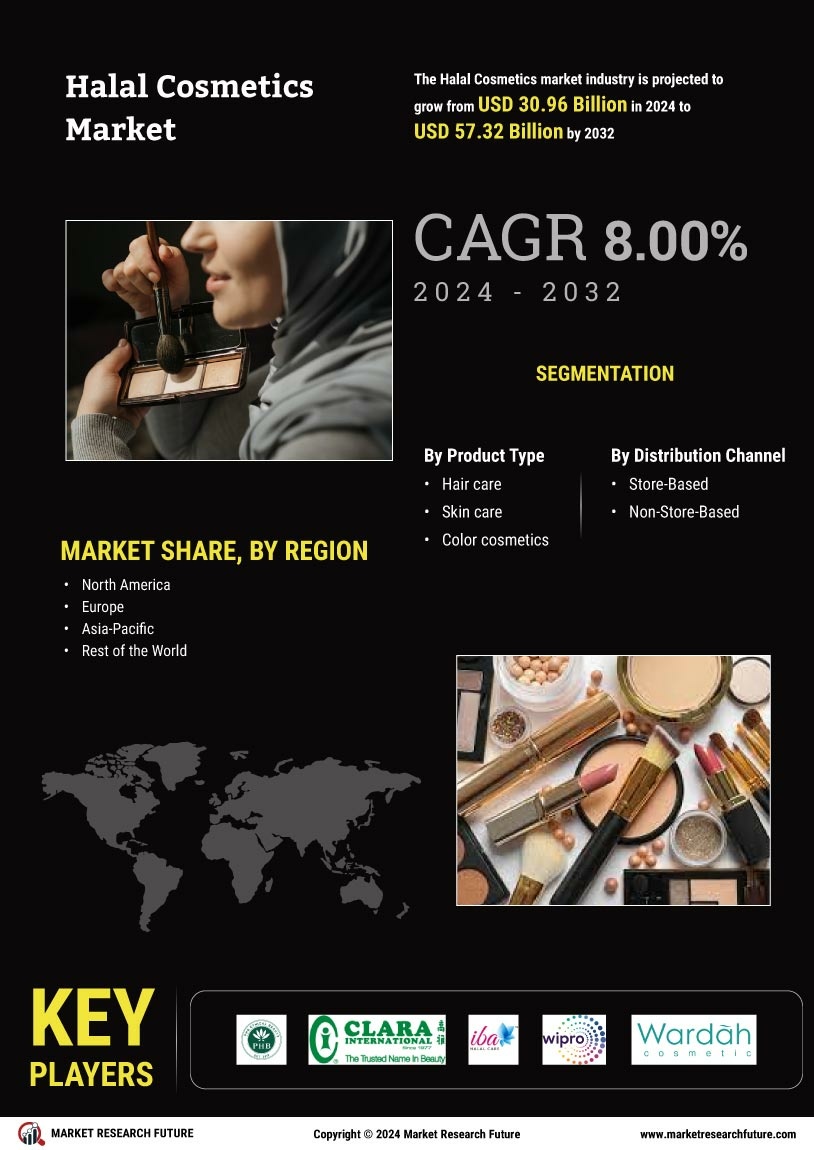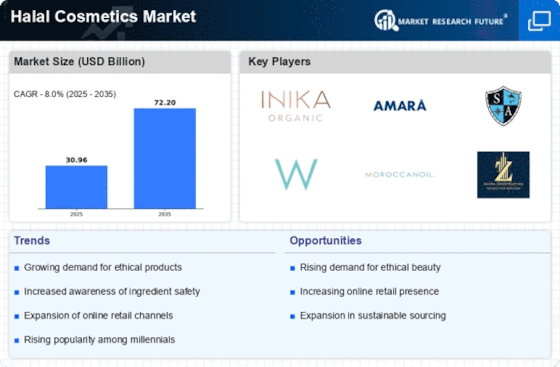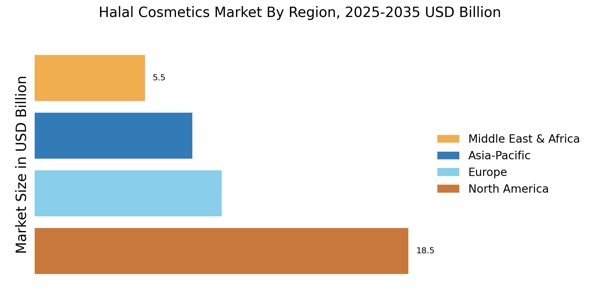Diverse Consumer Base
The Halal Cosmetics Market benefits from a diverse consumer base that extends beyond traditional Muslim demographics. While the primary consumers are indeed from Muslim communities, there is a rising interest among non-Muslim consumers who are drawn to the perceived purity and quality of Halal-certified products. This diversification is likely to enhance market growth, as brands that cater to a broader audience can tap into new customer segments. The increasing popularity of Halal cosmetics among various ethnic groups suggests that the market could expand significantly, potentially reaching a valuation of several billion dollars in the coming years.
Increasing Demand for Ethical Products
The Halal Cosmetics Market is experiencing a notable surge in demand for ethical products. Consumers are increasingly seeking cosmetics that align with their values, particularly those that adhere to Halal standards. This trend is driven by a growing awareness of ethical consumption, where individuals prioritize products that are cruelty-free, environmentally friendly, and free from harmful ingredients. According to recent data, the Halal cosmetics segment is projected to grow at a compound annual growth rate of approximately 12% over the next five years. This indicates a robust market potential as consumers become more discerning about their purchasing choices, favoring brands that reflect their ethical beliefs.
Regulatory Support and Standardization
The Halal Cosmetics Market is bolstered by increasing regulatory support and standardization efforts across various regions. Governments and regulatory bodies are recognizing the importance of Halal certification, leading to the establishment of clear guidelines and standards for Halal cosmetics. This regulatory framework not only enhances consumer trust but also encourages manufacturers to invest in Halal-certified products. As a result, the market is likely to witness a rise in the number of brands seeking certification, which could further drive growth. The establishment of standardized practices may also facilitate international trade, allowing Halal cosmetics to penetrate new markets more effectively.
Growing Awareness of Health and Wellness
The Halal Cosmetics Market is witnessing a growing awareness of health and wellness among consumers. As individuals become more health-conscious, there is a rising preference for cosmetics that are free from harmful chemicals and synthetic ingredients. Halal cosmetics, which often emphasize natural and organic components, align well with this trend. This shift in consumer behavior is likely to drive demand for Halal-certified products, as they are perceived to be safer and more beneficial for skin health. Market analysts suggest that this increasing focus on health and wellness could propel the Halal cosmetics sector to new heights, with potential growth rates reflecting the broader wellness movement.
Influence of Social Media and Digital Marketing
The Halal Cosmetics Market is significantly influenced by the rise of social media and digital marketing strategies. Brands are increasingly leveraging platforms like Instagram, Facebook, and TikTok to reach a wider audience and promote their Halal-certified products. Influencers and beauty bloggers play a crucial role in shaping consumer perceptions and driving demand for Halal cosmetics. This digital engagement not only enhances brand visibility but also fosters a sense of community among consumers who prioritize Halal products. As social media continues to evolve, it is expected that the market will see innovative marketing campaigns that resonate with younger consumers, potentially leading to increased sales and brand loyalty.


















